To plug or not to plug? That might just be the question stirring in the minds of modern, eco-conscious consumers. From fuel efficiency to carbon footprints, this article dives into the heart of the evolving auto industry’s most invigorating debate. Unpacking key differences, advantages, disadvantages, and behind-the-wheel realities, we’ll take a comprehensive look at electric versus hybrid cars. Whether you’re an enthusiast with a need for speed or a commuter in search of sustainability, fasten your seatbelts as we navigate the world of futuristic auto tech and aid you in making the right choice.
Understanding Electric Cars
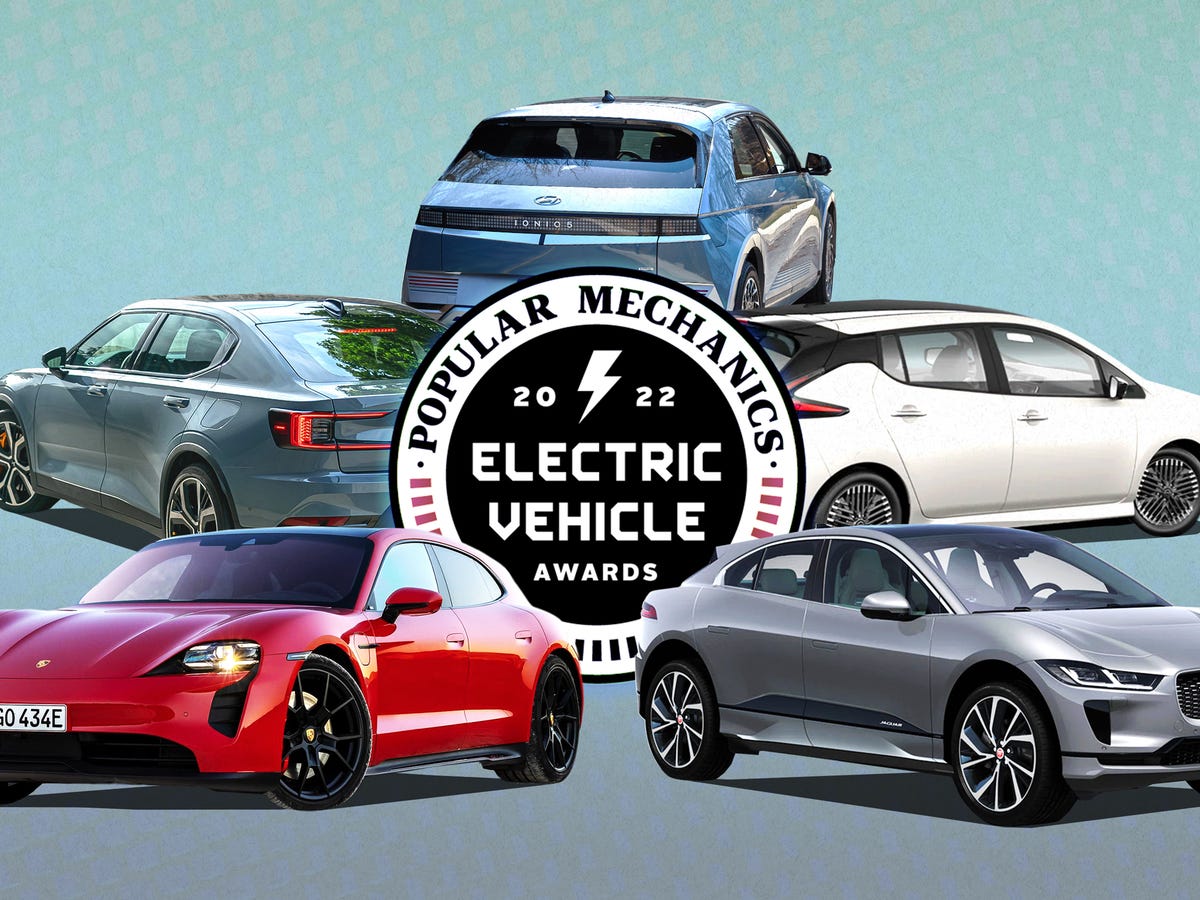
True to their name, electric cars run purely on electrical energy, with no internal combustion engine to sip fossil fuels. As such, their only emissions are from the power plant generating the electricity they use, which means local emissions of zero. How’s that for clean driving?
Electric cars derive their power from rechargeable batteries installed in the car. All you need to do is plug your ride into an outlet letting it sip the juice until it’s fully recharged. From there, the electric motor takes over, converting that electrical energy into mechanical energy to turn the wheels. This process is seamless, resulting in a quiet, smooth ride that could make it feel like you’re sliding on ice.
The mileage you get on a single charge – or as it’s more frequently called in the electric world, the range – depends on the make and model of your car. As technology has advanced, however, ‘range anxiety’ is becoming less of an issue. Many of the new kids on the block easily pull off 200-300 miles or more on a full charge. Quite a few, like the Tesla Model S, can even top 400 miles, a feat that rivals traditional gas-powered cars.
Using regenerative braking, your electric car can conserve energy, extend your range, and even save you some brake pads. While traditional cars lose energy as heat when braking, electric cars recover and reuse this energy. This not only makes a slight difference in your vehicle’s mileage but is also a pretty cool party trick if you ask me.
However, just like those high school sweethearts, electric cars come with a bit of baggage. Charging infrastructure, or rather lack thereof, can be a hurdle. Charging times vary depending on the type of charger used, and the availability of fast chargers is still somewhat limited. They might also seem expensive up front, while the potential savings from zero gas costs come in the longer run.
All in all, hopping onto the electric cars bandwagon does come with initial sacrifices, but it’s a future-forward, sustainable choice that offers smooth, high-performance driving and potential cost savings down the line. Plus, you get to feel like you’re living in the future, and who wouldn’t enjoy that?
Getting to know Hybrid Cars
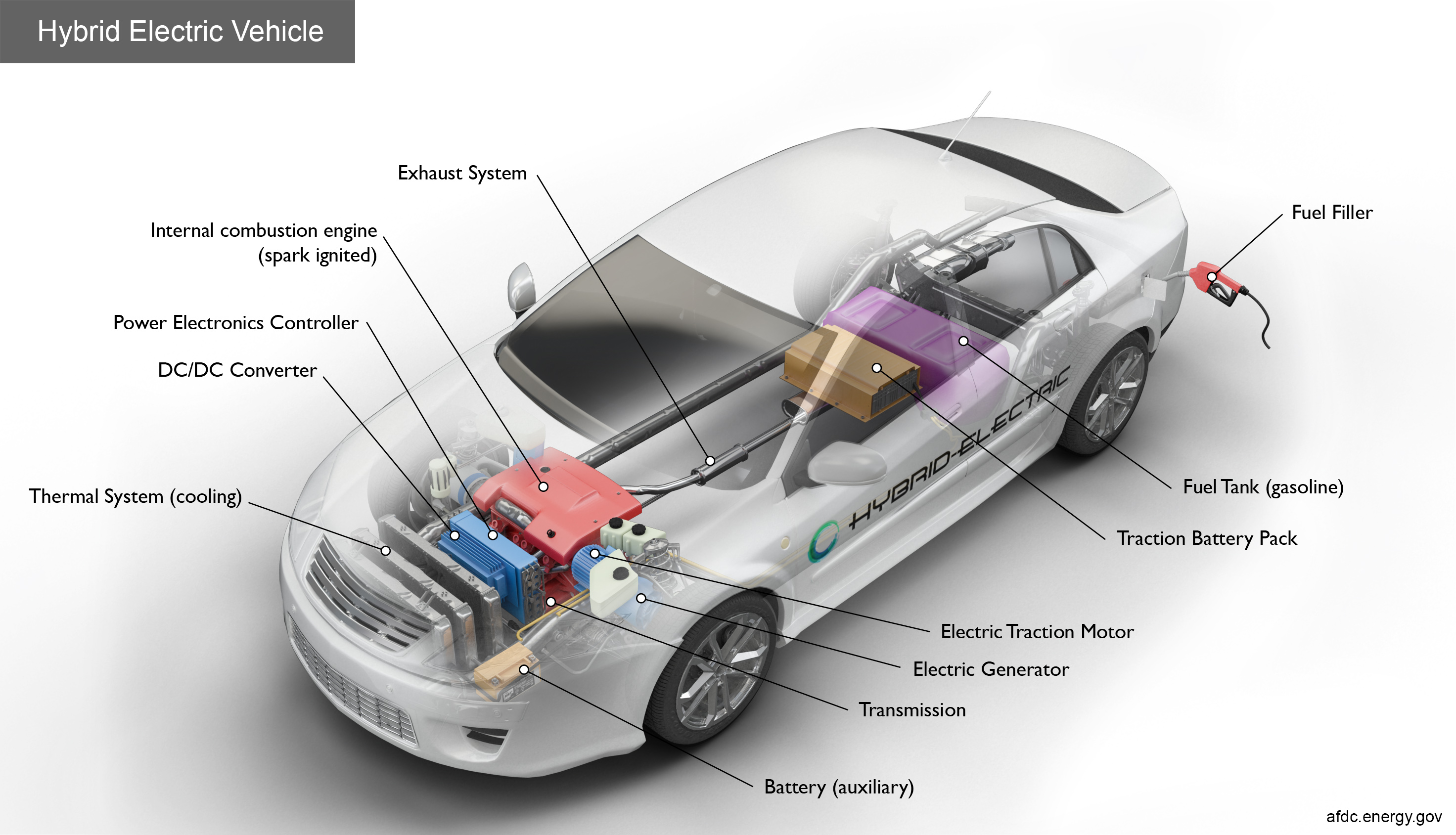
In our quest to understand alternative automotive power sources, hybrid cars hold a unique position. While full electric cars can run on pure battery power, hybrids have a gasoline engine that works in tandem with an electric motor. Think of it like a tag-team wrestling match where gasoline and electricity share the workload, maximizing efficiency.
So, how does a hybrid car work? At lower speeds or short distances, the electric motor does the heavy lifting, using the energy stored in the car’s battery. But for highway cruising or when more power is required, the gasoline engine takes over seamlessly. The beauty here is that the gas engine recharges the battery as it works. In some hybrids, energy from braking is also stored in the battery – a process known as regenerative braking.
One of the great perks of a hybrid vehicle is that it can save you plenty of visits to the gas station. Because the car uses the electric motor as much as possible, you end up burning significantly less fuel than a traditional vehicle, especially in city driving. A hybrid, therefore, will boast higher fuel efficiency, miles-per-gallon figures that can often make your jaw drop.
If you’re looking for a silent cruise through the neighborhood, hybrids’ electric mode can offer virtually silent operation. However, don’t be fooled into thinking hybrids don’t have pep; many can hold their own in the performance department as well. The combination of gas and electric power can even offer spirited acceleration as both power sources work in tandem.
But what about the battery? Doesn’t it need to be replaced often? Truth be told, hybrid batteries are designed to last the life of the car and many manufacturers offer lengthy warranties. Moreover, as the technology has improved, the cost of replacing these batteries has decreased.
The conundrum with hybrid cars, as opposed to fully electric, is that they still do rely on fossil fuels. If your goal is to completely eliminate your carbon footprint, a hybrid car may not be the perfect fit. But if you’re after the convenience of a traditional car with the benefits of an electric vehicle – a sort of “best of both worlds” scenario, then hybrid cars offer a tantalizing proposition.
Comparison: Electric vs Hybrid Cars
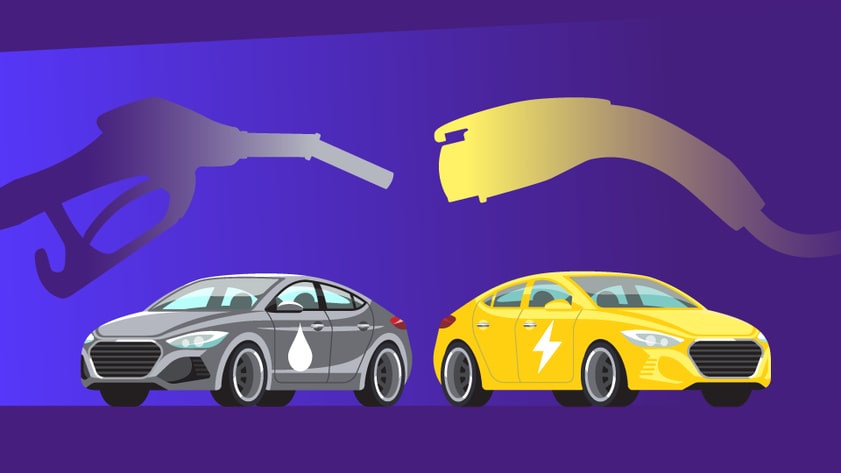
Diving headfirst into the electrified automotive pool, one might find themselves puzzled by the nuances between electric and hybrid cars. In essence, it boils down to just how electrified you want your ride to be.
Electric (EV) vehicles, in their most striking form, exist devoid of combustion engines, powered wholly by stored juice from plug-in chargers. Hybrid cars, however, maintain a combustion engine that dovetails with an electric motor to weave a fine balance between petrol and battery.
In terms of fuel efficiency, hybrids strike gold. The well-orchestrated union of engine and motor maximizes mileage while diminishing fill-ups at gas stations, still providing the convenience of traditional refueling for long treks. EVs trade miles for charge time, but bypass gas stations altogether, depending on your proximity to a charging port. The fuel costs, therefore, often swing in favor of the fully electrified.
When it comes to performance, most EVs outshine their hybrid counterparts by leaps and bounds. It’s all about the torque. An electric motor delivers maximum grunt from a standstill, enabling sports car-rivaling acceleration while still sipping energy. Hybrids, in contrast, divide the grunt between combustion and electric, giving you a smoother, and perhaps less exhilarating ride.
Yet, when throwing range into the mix, the tables shuffle. The conventional gas engine in the hybrid offers a lifeline when the battery taps out. Meanwhile, EV drivers must remain within the benevolent reach of charging stations lest they face the dreaded ‘range anxiety’.
We can’t cap off this comparison without dipping our toes into environmental waters. A hybrid will have you spewing fewer emissions than your plain Jane petrol car, thanks to its intermittent reliance on electric power. But it’s the EV that clinches the green card, wrestling carbon footprints to the ground, producing zero tailpipe emissions.
Whether you pick the hybrid for fuel efficiency and alleviated range anxiety or the EV for its torque-rich, environmentally-friendly charm, you’re joining the ranks of a future-forward battalion rigging for a petrol-less automotive landscape. The choice, however, is a delicate dance between your driving patterns, charging infrastructure availability, and the depth of your commitment to the green revolution.
Environmental Impact
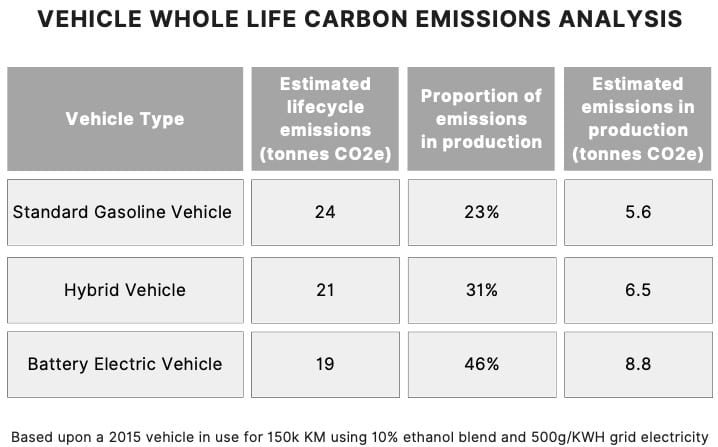
As we grappily hop into a greener tomorrow, it is crucial to consider environmental manifestations altogether. We reckon your decision between Electric Vehicles (EVs) and Hybrid Cars will primarily hinge on knowing how each impacts the environment.
Let’s start with electric vehicles. The environmental credentials of these cars seem downright unassailable. Run purely on electricity, EVs are tailpipe emission-free, meaning they don’t spew pollutants into the air while driving, a significant step towards curbing air pollution. That said, it’s pertinent to remember that these cars don’t derive their power from pixie dust. The electricity needed to charge EVs comes from the power grid which, depending on your location, could substantially rely on fossil fuels, somewhat diluting the clear-as-mountain-stream environmental portfolio of an EV.
Switching gears to hybrids, their environmental impact encapsulates a slightly bittersweet tale. Yes, they burn fossil fuels producing tailpipe emissions, but significantly less than conventional cars. The hybrid’s ability to run on electric power at lower speeds and to recapture energy through regenerative braking reduces the overall fuel consumption and emissions. Yet, there’s an environmental caveat. The construction of their complex systems, particularly, manufacturing two powertrains and a heavy battery, entails significant energy, translating into higher emissions.
It may seem like splitting hairs as you attempt to weigh the Earth-friendliness of EVs and Hybrid Cars. However, understand that both significantly outdo their gasoline-drinking counterparts in minimizing ecological damage. As electricity production becomes progressively cleaner and battery technology evolves, both these options will continue to diminish their environmental footprints. Ultimately your choice may also depend on factors such as driving habits, local pollution levels, and availability of renewable energy sources. It’s safe to say, though, that either choice steers you towards a more sustainable driving future.
Maintenance and Longevity

Driving down the road of maintenance and longevity, we might as well roll up our sleeves and get our hands greasy. Although we can’t ignore the fact that both electric and hybrid cars have drastically fewer parts than their gas-guzzling counterparts, they’re not all created equal when it comes to upkeep.
Starting with electric cars, let’s talk about the heart of these silent beasts: the battery. Your experience with your smartphone or laptop battery might have made you twitch. But relax, the lifespan of electric car batteries aren’t as short-lived. Modern designs mean most electric car batteries can hum along for 100,000 to 200,000 miles before they start losing serious capacity. Yes, eventually you might need to replace the battery, and that’s no pocket-change swap, but many manufacturers offer eight-year or even longer warranties on their batteries.
As for the general maintenance, unless you’ve got a penchant for running over sharp objects, you might not see the inside of a service center too often with an electric vehicle. Why? They just have fewer moving parts. No oil changes, no rad fan belts, no spark plugs, no timing belts — basically none of the traditional pitfalls of internal combustion-engine cars. The biggest chunk of your maintenance will land on tires, brake pads, and perhaps the coolant for your battery.
Speaking of internal combustion engines, that brings us to hybrid cars. Gasoline engines, no matter how sparingly used, still need regular maintenance. So remember, even if it’s a hybrid, you’re still stuck with oil changes, coolant refreshes, timing belts — the whole shebang. On the bright side, the regenerative braking systems in hybrids can drastically reduce brake wear, thrilling your wallet and probably your mechanic too.
However, we should not lose sight of the battery again. The concerns about battery lifespan persist in hybrid cars as well. But you’ll find most hybrids use a different kind of battery technology than fully electric cars, typically nickel-metal hydride, which have proven to be quite resilient. And when the battery’s might starts faltering? Most carmakers let your hybrid flag fly high with warranties similar to those of electric cars.
So, the final wrench in the works: whether you drive an electric vehicle or a hybrid, maintenance isn’t as much of a pain in the pocketbook as it is for gas-powered cars. But you should bear in mind that long-term costs are fairly model and brand specific. Always do a thorough model research and track down real-world experiences before making the final call.
Price Considerations
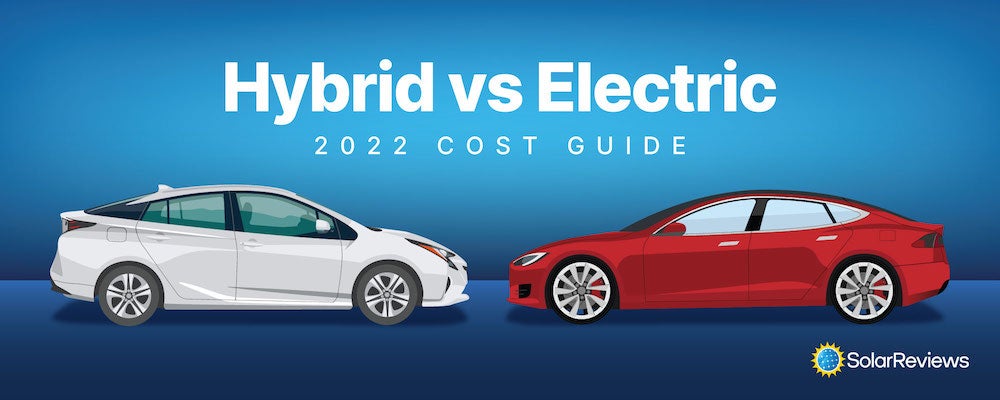
When it comes to the final bottom-line, purchasing an electric car tends to be more expensive upfront than their hybrid counterparts, but the cost differential is narrowing with an influx of more affordable electric models on the horizon. This cost consideration always seems to draw a line in the sand for interested buyers. You can expect to shell out anything from $30,000 and up for a new electric vehicle (EV), while hybrids are traditionally slightly cheaper. However, don’t forget the old adage – you get what you pay for.
Operating an electric vehicle generally costs less than a hybrid. Electricity is cheaper than gasoline, so although you’ll pay more at the dealership for an EV, your ‘fuel’ costs will be remarkably low. On the other hand, though hybrids do consume fuel, they do so at a much slower rate than conventional automobiles, making them a cost-friendly option over their gasoline counterparts.
Moreover, electric vehicles are entitled to a federal tax credit, which can be as high as $7,500, depending on the model and your individual tax situation. Do keep in mind that not all EVs qualify for the full credit. Several hybrids also qualify for this credit, but the numbers aren’t typically as high as with EVs.
One more thing to consider is the resale value. For a long time, hybrids, with their proven technology, have enjoyed better resale values compared to EVs. But as we’re witnessing the ‘Tesla Effect’ ripple through the used-car market, perceptions about electric vehicle longevity and battery life are shifting, potentially putting EVs and hybrids on an even keel in the resale market.
Finally, the value proposition on cost isn’t solely based on comparing price tags, fuel economy, and tax credits. It’s also about the long-term cost of ownership, which includes costs for maintenance and repair. Electric cars, with their fewer moving parts, tend to require less maintenance than hybrids, resulting in savings over the life of the car.
In a nutshell, the price considerations all boil down to what you prioritize in your vehicle. Your decision might lean towards the initial affordability of hybrids, the appealing low operation costs of electric cars, the attractive tax credits, or the potential resale value.
FAQs
What is the main difference between electric and hybrid cars?
In the red corner, we have electric cars; All hopped up on batteries and a disdain for fossils. In the blue corner, there are hybrids; They’re like mullets – business (electric motor) up front and party (gasoline engine) in the rear! To put simply, electric cars operate on batteries while hybrids use both an electric motor and a conventional engine. Now, go ponder over that!
Which one is more cost-effective, electric or hybrid cars?
Oh, that’s a tough call, my friend! Initial cost-wise, hybrids might be a better deal as they’re usually cheaper to purchase. But electric cars can save you more in the long run by minimizing fuel costs, unless your electricity is supplied by a hamster running in a wheel! So it depends on your driving habits and the longevity of your investment. Pause and think over that!
Are hybrid cars better for the environment?
Well, if you’re talking about racking up green points, then yes, hybrid cars are definitely a step up from conventional gas-guzzlers. But electric cars are the reigning champions here, with zero emissions. However, if you’re an environment enthusiast who lives next to a coal-fired power plant, then you might wanna consider that before gunning for the full electric option!
What about the performance of electric cars vs hybrid cars?
Performance, you say? Electric cars are usually quicker off the line. A Tesla may leave you grinning like a maniac with its ludicrous acceleration. Hybrids, on the other hand, offer a more familiar driving experience with plenty of pep for everyday driving. So whether you want to win drag races or you’re a “slow and steady wins the race” kind of person, the choice is yours!
Conclusion
Ultimately, the choice between electric and hybrid cars really depends on your priorities. If you desire a truly eco-friendly vehicle and don’t mind occasional charging, an electric car is indisputably your best bet. But if your driving often involves long distances and you want a taste of fuel efficiency without any range-anxiety, the tried-and-true hybrid is a reliable pick. Hence, assess your driving needs closely and make your choice. Either way, you’re making a move towards a more sustainable future, which is a win in any book.
